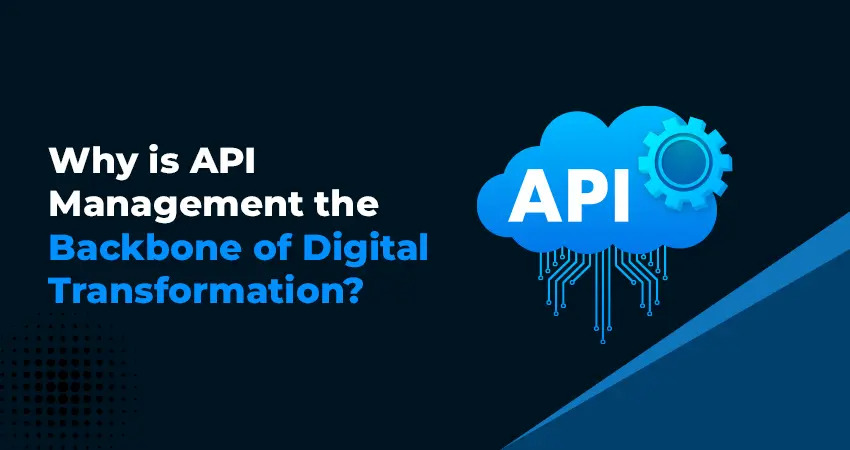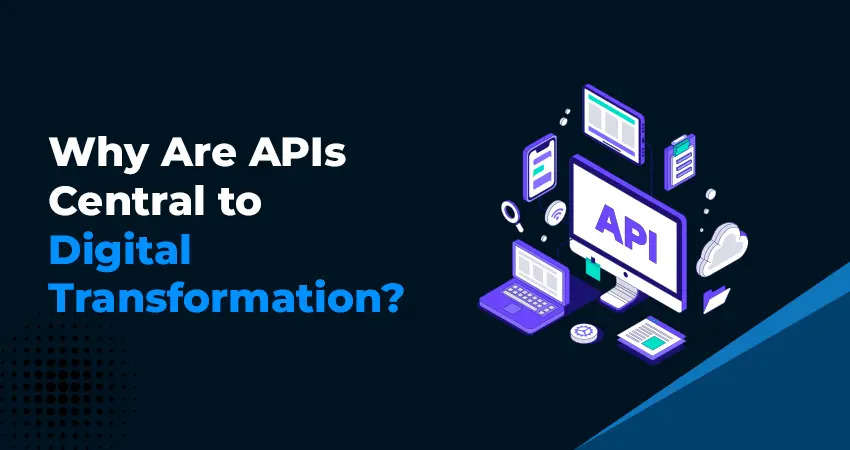
Digital evolution is no longer a luxury for companies; it is essential. In the U.S., enterprises are racing to implement advanced technologies to stay aggressive and adaptive. But adopting technology alone isn’t enough. The real challenge lies in uniting these systems, ensuring they work together seamlessly. That’s where API management becomes critical.
APIs (Application Programming Interfaces) are the quiet heroes of modern business, powering everything from mobile apps to cloud platforms. Managing these APIs effectively? That’s the game-changer that separates IT leaders from the crowd. Digital transformation is about more than just new tools; it’s about making those tools connect and communicate efficiently. Here’s where API management plays its pivotal role.
What Is API Management (In Simple Terms)?
To understand API management, it’s important to withdraw and re-examine what an API is: an organized way for software systems to talk to one another, exchanging data and functionalities. APIs are everywhere, driving e-commerce sites, enabling mobile app integrations, and even delivering weather updates to your smartwatch.
API management, on the other hand, ensures this communication runs smoothly and securely. Think of APIs as highways connecting cities, while API management functions as the traffic control system ensuring vehicles (data) flow efficiently, meet safety standards, and avoid congestion.
Key Components of API Management:
API management incorporates a range of tools and practices created to supervise the lifecycle of APIs from invention to retirement. It guarantees effortless connection between systems while preserving security, flexibility and performance. Proper API management is important for companies to provide consistent services, meet user standards and get advancement. Below is a list of the key components of effective API management:
- API Gateway: Works as the traffic manager routing requests between endpoints.
- Developer Portal: A data center for developers to login API documentation, sample code and support.
- Security: Protects APIs with verification (OAuth, JWT), rate limiting and compliance policies.
- Lifecycle Management: Tracks APIs from their creation to retirement, ensuring they stay relevant and efficient.
- Analytics: Provides real-time data on API usage, helping businesses make better decisions.
- Monetization: Enables enterprises to generate revenue by offering APIs as paid products or subscription services.
Why Are APIs Central to Digital Transformation?

At the heart of digital evolution is the capability to connect different systems and unlock inventions. APIs serve as the important bridge between inheritance systems and innovative uses, empowering organizations to stay appropriate and responsive in today’s fast-paced digital world.
Key Roles of APIs in Transformation:
- Microservices Architecture: APIs power microservices, allowing organizations to build systems that are modular, scalable and easy to update.
- Cloud and Mobile Adoption: APIs allow the seamless unification of cloud solutions and mobile strategies, driving enhanced user experiences.
- Faster Innovation: With an API-first approach, businesses can shorten their product life cycles, rolling out services quicker than their challenge
Example: A leading U.S. healthcare provider utilized APIs to connect their electronic health record (EHR) systems with telemedicine apps and insurance platforms. This integration not only improved operational effectiveness but also uplifted patient experiences with real time access to critical data.
The Role of API Management in Making It All Work
API management acts as the backbone guaranteeing that APIs deliver their full possibility. Here’s how it works:
Seamless Integration Across Systems
Businesses today work with a complex mix of cloud, SaaS, legacy and third-party platforms. API management enhances the unification of these systems, breaking down data silos and allowing seamless operations.
Example: With API management, enterprises can connect cloud-based CRM tools, on-premise ERPs and external payment gateways into a single streamlined workflow.
Security & Governance at Scale
APIs, while powerful, can present vulnerabilities if not managed securely. API management ensures:
- Authentication through OAuth or JWT tokens
- Rate limiting to prevent abuse
- Adherence to compliance policies like GDPR or CCPA
- Centralized enforcement of security protocols
Developer Enablement & Speed
A well-managed developer portal is a key part of API management. It fosters collaboration, speeds up development cycles, and helps teams launch services faster. Features like sandbox environments and version control ensure APIs evolve without breaking services.
Data-Driven Decision Making
API management provides live data analysis on usage patterns, response times, and demand. These insights enable enterprises to optimize APIs, anticipate peak usage times, and drive smarter business decisions
Common Pitfalls Without API Management
Failing to execute API management can lead to disorder, disorganization and weaknesses. Some common pitfalls include:
- Spaghetti architecture resulting from poorly integrated systems.
- Duplicated efforts, as different teams develop redundant APIs.
- Security risks due to lack of centralized policies.
- Longer development cycles, making it harder to innovate quickly.
- Lost revenue opportunities, as APIs aren’t monetized effectively.
Why Are U.S. Enterprises Doubling Down on API Management?
The United States (U.S.) is at the forefront of the digital transformation wave, and API management has become a critical focus area for businesses.
Market Trends Proving the Value of API Management:
- 80% of U.S. enterprises plan to expand investment in API-first frameworks by 2025.
- The growing demand for multi-channel experiences, fueled by remote work and instant data access is pushing enterprises to optimize their APIs.
- APIs are also key to AI integration, allowing companies to harness the full power of data across platforms.
How Techzert Helps Enterprises Lead Digital Transformation
At Techzert, we understand the complexities of managing APIs in enterprise ecosystems. Our API management services are tailored to help your organization thrive in the digital age:
- Secure Implementation: Industry-leading practices to ensure API security and governance.
- Lifecycle Governance: From creation to retirement, we help you manage every stage efficiently.
- Multicloud Integration: Seamlessly connect APIs across AWS, Google Cloud, Azure, and on-premise setups.
- API Consulting Services: Expert guidance on building adaptable API strategies.
Our platform is fully harmonious with leading API management tools like Apigee, IBM API Connect and Tyk.
Conclusion: API Management Is the inflexible Enabler of Transformation
To stay agile, secure, and competitive in the digital economy, managing your APIs effectively is essential. APIs act as the critical connectors between systems allowing companies to innovate faster and serve their customers better. And API management? That’s what guarantees everything works seamlessly, securely, and at scale.
Don’t get left behind. Empower your business with robust API management strategies and tools. Contact Techzert today and start leading your industry’s digital transformation.
Talk to Our Expert
Our Services
ISO 20022 (MT to MX) Adoption & Migration
FTM For Corporate Payment Services
IBM Cloud Park For Integration (CP4i)
